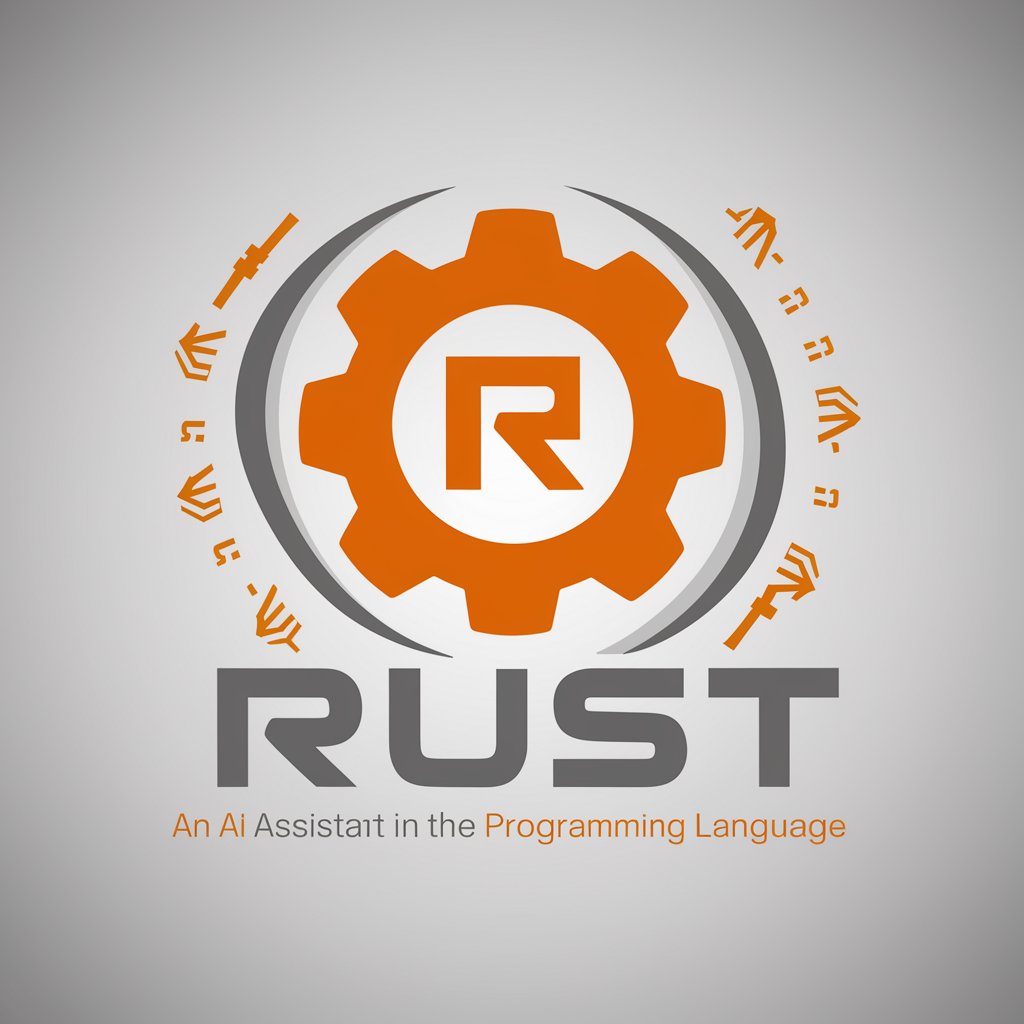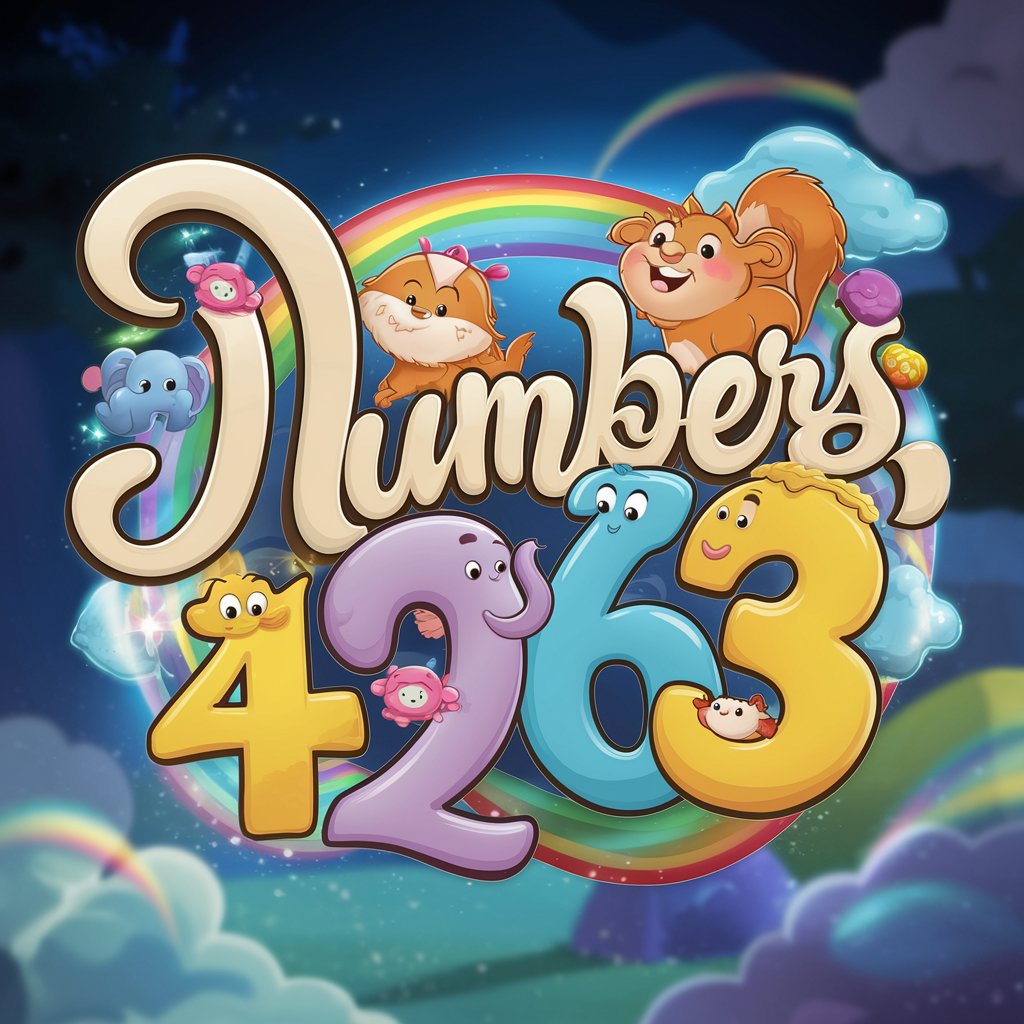Rust - Rust Learning and Development

Hello! How can I assist you with Rust programming today?
Empower your code with Rust's safety and speed.
Explain the concept of memory safety in Rust.
How can I handle concurrency in Rust?
What are some best practices for error handling in Rust?
Can you help me optimize this Rust code?
Get Embed Code
Introduction to Rust Programming Language
Rust is a multi-paradigm system programming language focused on safety, especially safe concurrency. It is syntactically similar to C++, but it provides memory safety without using garbage collection. Rust achieves memory safety through its 'ownership' model, where variables are 'owned' by only one entity at a time and only the owner can alter the data. When the owner goes out of scope, the variable is dropped, ensuring no memory leaks. Rust also features zero-cost abstractions, move semantics, guaranteed memory safety, threads without data races, trait-based generics, pattern matching, type inference, and efficient C bindings. An example scenario illustrating Rust's safety features could be a multi-threaded web server, where Rust's ownership model and borrow checker ensure that shared data is accessed safely, preventing data races common in parallel programming. Powered by ChatGPT-4o。

Key Functions of Rust
Memory Safety Without Garbage Collection
Example
Implementing a linked list, where Rust's ownership and lifetime features ensure memory is managed correctly without the overhead of a garbage collector.
Scenario
Building high-performance, low-latency systems where manual memory management is critical, such as in embedded systems or operating systems.
Concurrency Without Data Races
Example
Developing a concurrent network application, where Rust's type system and ownership model prevent data races, a common issue in concurrent programming.
Scenario
Creating robust, scalable server-side applications where safe concurrency is key to handling multiple requests efficiently.
Zero-Cost Abstractions
Example
Using iterators and closures that get compiled to the same machine code as hand-written loops and function calls, optimizing runtime performance.
Scenario
Developing complex algorithms and data processing tasks where performance is critical, such as in real-time systems or high-frequency trading platforms.
Efficient C Bindings
Example
Calling a C library from Rust code, enabling the use of Rust's safety features and modern syntax while leveraging existing C libraries.
Scenario
Integrating Rust in legacy systems or when needing to use pre-existing C codebases, such as in systems programming or embedded devices.
Ideal Users of Rust
Systems Programmers
Developers working on operating systems, embedded systems, and other low-level applications where control over memory and performance is crucial. Rust's zero-cost abstractions and memory safety make it an ideal choice for these tasks.
Web Developers
Particularly those working on back-end systems. Rust's efficient concurrency model and safety guarantees enable building fast, reliable web services, especially where performance and security are paramount.
Network Programmers
Professionals who build networked applications and services. Rust's guarantees against data races and memory safety issues are essential in environments where data integrity and speed are critical.
Game Developers
Rust is suitable for game development, particularly in performance-critical parts of game engines. Its focus on safety and performance makes it a viable alternative to C++ in this field.

How to Use Rust
Start Without Hassle
Begin by visiting a platform that offers a hands-on Rust experience without the need for sign-ups or subscriptions, similar to accessing a free trial at yeschat.ai.
Install Rust
Download and install Rust via rustup, Rust's official command-line tool for managing Rust versions and associated tools. Ensure your system meets the prerequisites, such as a compatible operating system and necessary build tools.
Explore Documentation
Dive into the Rust documentation to familiarize yourself with the language's syntax, features, and best practices. The Rust Book and Rust by Example are excellent starting points.
Build a Project
Start a simple project, such as a command-line tool or web server, to apply what you've learned. Utilize Cargo, Rust's package manager and build system, to manage dependencies and build your project.
Join the Community
Engage with the Rust community for support, to share your projects, and to stay updated on Rust's evolving ecosystem. Platforms like the users.rust-lang.org forum, Reddit, and Discord are great places to connect.
Try other advanced and practical GPTs
Harmonyville Storyteller
Craft immersive RPGs with AI power.

Eva Virtual Companion
Engage, Learn, and Feel with AI

QCAS Assistant
Streamlining Your Equipment Choices

Shopping Assistant GPT
Revolutionizing Your Shopping Experience with AI

GPT Prompt Wizard
Optimize your prompts with AI-powered precision.

Tutor Teacher
Empowering education with AI customization

Whim Bot
Your enchanting AI muse for creativity and insight.

Accountant
Empowering Finance with AI

Numbers
Making Numbers Fun with AI

"Persoonlijk advocaat "
Empowering legal decisions with AI

Académie Homéopathique
Empowering Homoeopathic Education with AI

WorkZenNow
Find Calm Amidst Chaos, Powered by AI

Rust Q&A
What is Rust primarily used for?
Rust is used for system-level programming, web development, game development, and more. Its focus on safety, speed, and concurrency makes it suitable for high-performance applications where safety and efficiency are crucial.
How does Rust ensure memory safety?
Rust enforces memory safety through its ownership system, which ensures that each piece of data has a single owner to manage its memory. The compiler's borrow checker enforces rules that prevent data races and unsafe memory access.
Can Rust be used for web development?
Yes, Rust can be used for web development through frameworks like Actix and Rocket for backend services, and WASM (WebAssembly) for compiling Rust code to run in the web browser, enabling high-performance web applications.
What are Rust's concurrency features?
Rust offers powerful concurrency features, including ownership and type checking, which prevent common concurrency problems. It supports various concurrency models, such as threads, futures, and async/await syntax for efficient and safe concurrent code.
How does Rust compare to other programming languages?
Rust offers a unique combination of performance, safety, and concurrency. Unlike languages like C++, Rust guarantees memory safety without a garbage collector. Its modern syntax and features also make it a strong alternative to languages like Go for systems programming.
